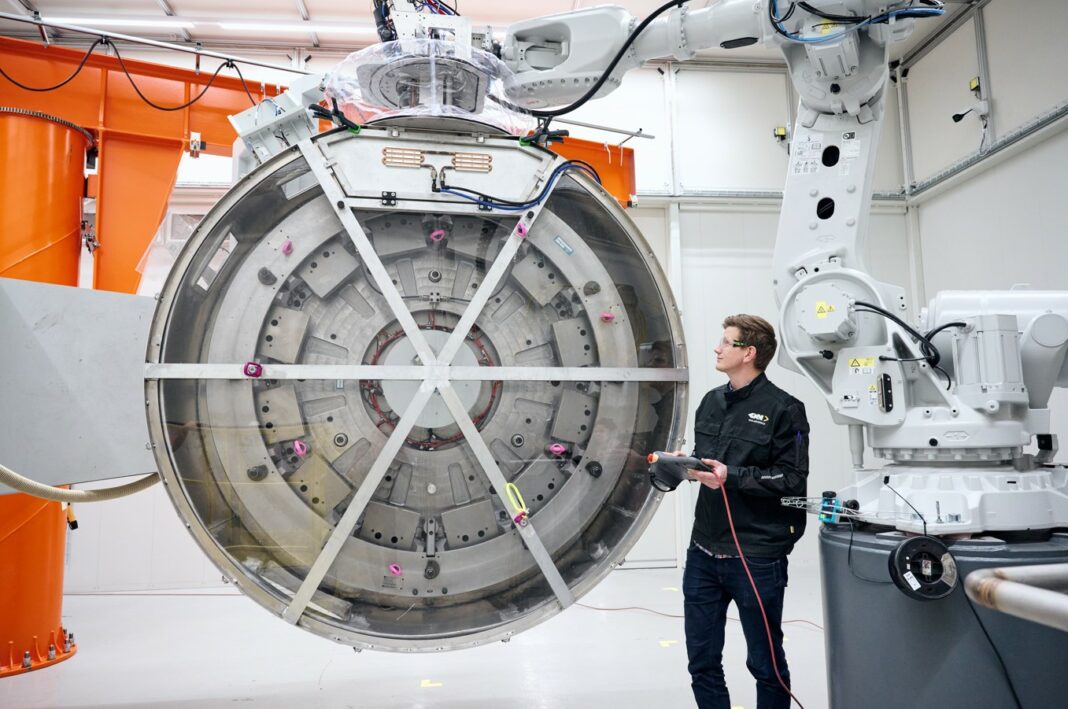This investment is meant to build a Centre of Excellence in Trollhättan, Sweden, and will create 250 jobs for highly skilled engineers and operators.
Aerospace company GKN Aerospace has announced a £50 million (600 million SEK) investment in its additive fabrication technology in Trollhättan, Sweden. The Swedish Energy Agency’s Industriklivet initiative will fund £12 million (152 million SEK) of this investment, which will help to revolutionize production methods by reducing raw material usage by up to 80%. The technology will be embedded at GKN Aerospace’s Trollhättan facility in Sweden, and will be operational later in 2024.
Currently, aircraft engine components rely on large castings and forgings, with up to 80% of the material machined away before reaching the final form. By employing additive technology, which involves layer-by-layer construction using metal wire or powder fused together with lasers, GKN Aerospace is able to minimise raw material waste, energy use and shipping within production. This significantly cuts emissions, costs and lead time.
GKN Aerospace has been at the forefront of additive fabrication for almost two decades, and has significant research and technology centres in Sweden, the UK and the US. Thanks to the backing from Industriklivet, the new additive production centre in Sweden is projected to create around 150 new job opportunities for operators, technicians, and engineers at the Trollhättan facility.
Joakim Andersson, president of GKN Aerospace’s Engines business, said: “We are committed to driving sustainability in the aviation industry and pioneering improved solutions for our customers. Our development of additive fabrication for large, complex and load-bearing aircraft components is a great example of this and it marks a significant breakthrough for the industry. The benefits we see from this technology are truly game-changing. Government support has been pivotal in enabling us to push our capabilities forward and I am delighted to establish this unique technology in our world-leading facility in Trollhättan Sweden.”
Peter Engdahl, Head of Research, Innovation and Business Development at the Swedish Energy Agency said: “GKN Aerospace’s solution will be able to contribute to a reduced use of raw materials and create opportunities to fundamentally change the design, making the aircraft engine lighter and more efficient. This is the first time this technology is being tested for this component size and we see the potential for it to spread globally and also in other areas.”
Remember, you can post job opportunities in the AM Industry on 3D ADEPT Media for free or look for a job via our job board. Make sure to follow us on our social networks and subscribe to our weekly newsletter: Facebook, Twitter, LinkedIn & Instagram ! If you want to be featured in the next issue of our digital magazine or if you hear a story that needs to be heard, make sure you send it to contact@3dadept.com


